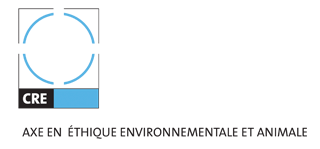Aucun événement à venir
Événements passés
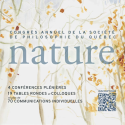 5 Juin 2025 - « Des racines aux concepts : les plantes en philosophie »
5 Juin 2025 - « Des racines aux concepts : les plantes en philosophie »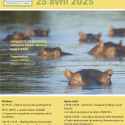 25 Avr 2025 - Atelier des membres du GRÉEA
25 Avr 2025 - Atelier des membres du GRÉEA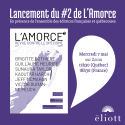 7 Mai 2025 - Lancement du 2e numéro papier de L’Amorce, une revue contre le spécisme
7 Mai 2025 - Lancement du 2e numéro papier de L’Amorce, une revue contre le spécisme 28 Avr 2025 - Atelier d’éthique animale
28 Avr 2025 - Atelier d’éthique animale 4 Avr 2025 - Jay Bernstein (New School for Social Research)
4 Avr 2025 - Jay Bernstein (New School for Social Research) 22 Avr 2025 - Jean-François Pradeau (Université de Lyon 3)
22 Avr 2025 - Jean-François Pradeau (Université de Lyon 3) 28 Jan 2025 - Pierre André (Université catholique de Louvain)
28 Jan 2025 - Pierre André (Université catholique de Louvain) 30 Jan 2025 - « The Grounds of Moral Status: Sentience and (a bit) beyond », Will Gildea
30 Jan 2025 - « The Grounds of Moral Status: Sentience and (a bit) beyond », Will Gildea 23 Jan 2025 - REPORTÉ – « Localizing Knowledge in Sustainability Discourse », Olusegun Samuel
23 Jan 2025 - REPORTÉ – « Localizing Knowledge in Sustainability Discourse », Olusegun Samuel 25 Juin 2024 - Luttes de justice sociale et environnementale: l’engagement des chercheur.ses
25 Juin 2024 - Luttes de justice sociale et environnementale: l’engagement des chercheur.ses 26 Juin 2024 - « Quel rôle pour les animaux dans les sciences, les pratiques et les imaginaires du réensauvagement ? »
26 Juin 2024 - « Quel rôle pour les animaux dans les sciences, les pratiques et les imaginaires du réensauvagement ? » 22 Fév 2024 - Protéger les écosystèmes: Enjeux philosophiques
22 Fév 2024 - Protéger les écosystèmes: Enjeux philosophiques 17 Mai 2024 - Éthique animale et éthique de l’IA: quels croisements ?
17 Mai 2024 - Éthique animale et éthique de l’IA: quels croisements ? 10 Jan 2024 - « Practising Conservation: the Intersection of Decolonisation and Ubuntu thought »
10 Jan 2024 - « Practising Conservation: the Intersection of Decolonisation and Ubuntu thought » 1 Oct 2023 - Retour sur la Déclaration de Montréal sur l’exploitation animale
1 Oct 2023 - Retour sur la Déclaration de Montréal sur l’exploitation animale 28 Juin 2023 - The Ethics of Animal Shelters (2023, OUP), edited by Valéry Giroux, Angie Pepper, and Kristin Voigt
28 Juin 2023 - The Ethics of Animal Shelters (2023, OUP), edited by Valéry Giroux, Angie Pepper, and Kristin Voigt 17 Avr 2023 - Pluralist Politics, Relational Worlds: Vulnerability and Care of the Earth, par Didier Zúñiga
17 Avr 2023 - Pluralist Politics, Relational Worlds: Vulnerability and Care of the Earth, par Didier Zúñiga 7 Mar 2023 - « The dire circumstances of interspecies justice »
7 Mar 2023 - « The dire circumstances of interspecies justice » 2 Nov 2022 - « Logiques intersectionnelles et enjeux genrés de l’engagement antispéciste : une mise en perspective franco-québécoise »
2 Nov 2022 - « Logiques intersectionnelles et enjeux genrés de l’engagement antispéciste : une mise en perspective franco-québécoise »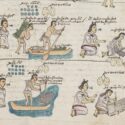 24 Jan 2023 - « Progress, technology, nature: Life and death in the Valley of Mexico »
24 Jan 2023 - « Progress, technology, nature: Life and death in the Valley of Mexico » 22 Sep 2022 - Journées d’étude des jeunes chercheur.ses en éthique environnementale ou animale
22 Sep 2022 - Journées d’étude des jeunes chercheur.ses en éthique environnementale ou animale 25 Mai 2022 - Balam Kenter (Concordia U.)
25 Mai 2022 - Balam Kenter (Concordia U.) 27 Avr 2022 - Workshop on animal cognition | Journée d’étude sur la cognition animale
27 Avr 2022 - Workshop on animal cognition | Journée d’étude sur la cognition animale 1 Déc 2021 - Brendan Cline (California State University-Channel Islands)
1 Déc 2021 - Brendan Cline (California State University-Channel Islands) 6 Juil 2021 - Animal rights & the concept of dignity
6 Juil 2021 - Animal rights & the concept of dignity 27 Avr 2021 - Groupe de lecture en philosophie de l’écologie
27 Avr 2021 - Groupe de lecture en philosophie de l’écologie 30 Mar 2021 - Groupe de lecture en philosophie de l’écologie
30 Mar 2021 - Groupe de lecture en philosophie de l’écologie 23 Fév 2021 - Groupe de lecture en philosophie de l’écologie
23 Fév 2021 - Groupe de lecture en philosophie de l’écologie 27 Avr 2021 - Simona Capisani (Harvard University)
27 Avr 2021 - Simona Capisani (Harvard University) 18 Mai 2021 - Réunion du groupe de lecture du GRÉEA
18 Mai 2021 - Réunion du groupe de lecture du GRÉEA 6 Avr 2021 - Réunion du groupe de lecture du GRÉEA
6 Avr 2021 - Réunion du groupe de lecture du GRÉEA 9 Fév 2021 - Réunion du groupe de lecture du GRÉEA
9 Fév 2021 - Réunion du groupe de lecture du GRÉEA 12 Jan 2021 - Réunion du groupe de lecture du GRÉEA
12 Jan 2021 - Réunion du groupe de lecture du GRÉEA 17 Mar 2021 - Ben Dixon, Stephen F. Austin (State University)
17 Mar 2021 - Ben Dixon, Stephen F. Austin (State University) 3 Fév 2021 - Lancement du livre 𝙇𝙖 𝙥𝙚𝙣𝙨𝙚́𝙚 𝙫𝙚́𝙜𝙖𝙣𝙚. 50 𝙧𝙚𝙜𝙖𝙧𝙙𝙨 𝙨𝙪𝙧 𝙡𝙖 𝙘𝙤𝙣𝙙𝙞𝙩𝙞𝙤𝙣 𝙖𝙣𝙞𝙢𝙖𝙡𝙚 (dir.) Renan Larue
3 Fév 2021 - Lancement du livre 𝙇𝙖 𝙥𝙚𝙣𝙨𝙚́𝙚 𝙫𝙚́𝙜𝙖𝙣𝙚. 50 𝙧𝙚𝙜𝙖𝙧𝙙𝙨 𝙨𝙪𝙧 𝙡𝙖 𝙘𝙤𝙣𝙙𝙞𝙩𝙞𝙤𝙣 𝙖𝙣𝙞𝙢𝙖𝙡𝙚 (dir.) Renan Larue 19 Jan 2021 - Roberta Millstein (UC Davis)
19 Jan 2021 - Roberta Millstein (UC Davis) 10 Nov 2020 - Alastair Norcross, « The Impotence of the Causal Impotence Objection »
10 Nov 2020 - Alastair Norcross, « The Impotence of the Causal Impotence Objection » 10 Mar 2021 - The dignity of subjectivity account of the wrongness of killing
10 Mar 2021 - The dignity of subjectivity account of the wrongness of killing 18 Nov 2020 - Michaël Lessard (University of Toronto)
18 Nov 2020 - Michaël Lessard (University of Toronto) 3 Nov 2020 - Marion Hourdequin (Colorado College)
3 Nov 2020 - Marion Hourdequin (Colorado College) 2 Juil 2020 - Angie Pepper (University of Roehampton)
2 Juil 2020 - Angie Pepper (University of Roehampton) 19 Mai 2020 - « Can justice respect needs and nature? The idea of a nature-respecting sufficieny »
19 Mai 2020 - « Can justice respect needs and nature? The idea of a nature-respecting sufficieny » 26 Mai 2020 - Nicolas Treich (Reseach Faculty, INRA)
26 Mai 2020 - Nicolas Treich (Reseach Faculty, INRA) 20 Mai 2020 - Décroissance et transition verte
20 Mai 2020 - Décroissance et transition verte 17 Mar 2020 - REPORTÉ! Raphaël Proulx (UQTR) et Thibaut Quinchon (artiste sonore)
17 Mar 2020 - REPORTÉ! Raphaël Proulx (UQTR) et Thibaut Quinchon (artiste sonore) 13 Oct 2020 - « The Cheese that Agriculture Won’t Allow »
13 Oct 2020 - « The Cheese that Agriculture Won’t Allow » 18 Fév 2020 - REPORTÉ ! « Lutter pour la justice environnementale »
18 Fév 2020 - REPORTÉ ! « Lutter pour la justice environnementale » 16 Jan 2020 - « Le véganisme comme mouvement social : une approche par l’analyse de réseau »
16 Jan 2020 - « Le véganisme comme mouvement social : une approche par l’analyse de réseau »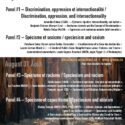 30 Août 2021 - Spécisme et autres discriminations / Speciesism and other discriminations
30 Août 2021 - Spécisme et autres discriminations / Speciesism and other discriminations 15 Nov 2019 - Stéphanie Posthumus (Mc Gill University)
15 Nov 2019 - Stéphanie Posthumus (Mc Gill University) 21 Nov 2019 - Marc Fleurbaey (University Center for Human Values, Princeton University)
21 Nov 2019 - Marc Fleurbaey (University Center for Human Values, Princeton University) 17 Déc 2019 - Elena Casetta (Université de Turin)
17 Déc 2019 - Elena Casetta (Université de Turin) 15 Oct 2019 - Frédéric Côté-Boudreau (Queen’s University)
15 Oct 2019 - Frédéric Côté-Boudreau (Queen’s University)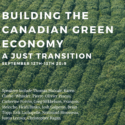 12 Sep 2019 - Building the Canadian Green Economy. A Just Transition
12 Sep 2019 - Building the Canadian Green Economy. A Just Transition 5 Juin 2019 - Jérôme Segal (ESPE Paris, Université Paris Sorbonne)
5 Juin 2019 - Jérôme Segal (ESPE Paris, Université Paris Sorbonne) 14 Avr 2019 - Animal Welfare Organizations: Responding to Ethical Challenges
14 Avr 2019 - Animal Welfare Organizations: Responding to Ethical Challenges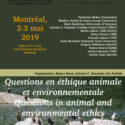 2 Mai 2019 - Questions en éthique animale et environnementale
2 Mai 2019 - Questions en éthique animale et environnementale 1 Mar 2019 - « La philosophie à l’abattoir. Réflexions sur le bacon, l’empathie et l’éthique animale »
1 Mar 2019 - « La philosophie à l’abattoir. Réflexions sur le bacon, l’empathie et l’éthique animale »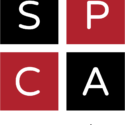 14 Mar 2019 - Animal welfare organizations: responding to ethical challenges
14 Mar 2019 - Animal welfare organizations: responding to ethical challenges 30 Nov 2018 - « Que pensent les animaux de la zoothérapie? »
30 Nov 2018 - « Que pensent les animaux de la zoothérapie? » 21 Nov 2018 - Rémi Beau (Paris 1 Panthéon/Sorbonne)
21 Nov 2018 - Rémi Beau (Paris 1 Panthéon/Sorbonne) 22 Oct 2018 - « Animal welfare organizations: responding to ethical challenges »
22 Oct 2018 - « Animal welfare organizations: responding to ethical challenges »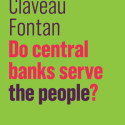 26 Oct 2018 - Lancement du livre: Do central banks serve the people?
26 Oct 2018 - Lancement du livre: Do central banks serve the people? 4 Avr 2018 - Être végane aujourd’hui au Québec: de l’engagement quotidien au « militantisme »
4 Avr 2018 - Être végane aujourd’hui au Québec: de l’engagement quotidien au « militantisme » 26 Fév 2018 - « Enabling Nonhuman Animal Agency: Consent, Assent, and Dissent »
26 Fév 2018 - « Enabling Nonhuman Animal Agency: Consent, Assent, and Dissent » 28 Fév 2018 - Alain Létourneau (Université de Sherbrooke)
28 Fév 2018 - Alain Létourneau (Université de Sherbrooke) 13 Déc 2017 - Catherine Machalaba (Policy Advisor, EcoHealth Alliance)
13 Déc 2017 - Catherine Machalaba (Policy Advisor, EcoHealth Alliance)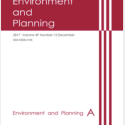 11 Déc 2017 - Urban service provision: Insights from pragmatism and ethics
11 Déc 2017 - Urban service provision: Insights from pragmatism and ethics 17 Jan 2018 - « Carl Schmitt and possible applications of his work to inter-species politics »
17 Jan 2018 - « Carl Schmitt and possible applications of his work to inter-species politics » 29 Nov 2017 - « Climate Justice and Animals »
29 Nov 2017 - « Climate Justice and Animals » 21 Nov 2017 - « Animal’s interest in privacy »
21 Nov 2017 - « Animal’s interest in privacy » 24 Oct 2017 - Lancement de livres en éthique animale
24 Oct 2017 - Lancement de livres en éthique animale 16 Oct 2017 - « Le véganisme sous attaque »
16 Oct 2017 - « Le véganisme sous attaque » 6 Déc 2017 - Mark Budolfson (U. of Vermont)
6 Déc 2017 - Mark Budolfson (U. of Vermont)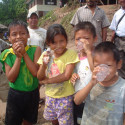 7 Nov 2017 - « La disponibilité des données : l’angle mort de l’analyse des politiques publiques »
7 Nov 2017 - « La disponibilité des données : l’angle mort de l’analyse des politiques publiques » 28 Août 2017 - Les animaux non humains, la justice climatique et l’expérimentation scientifique
28 Août 2017 - Les animaux non humains, la justice climatique et l’expérimentation scientifique 5 Juin 2017 - « Predictive ecology and decision making »
5 Juin 2017 - « Predictive ecology and decision making » 3 Avr 2017 - Droits politiques des animaux non humains
3 Avr 2017 - Droits politiques des animaux non humains 30 Mar 2017 - Vanessa Nurock (Université Paris 8, CNRS, UCLA)
30 Mar 2017 - Vanessa Nurock (Université Paris 8, CNRS, UCLA) 21 Mar 2017 - Didier Babin (CIRAD)
21 Mar 2017 - Didier Babin (CIRAD)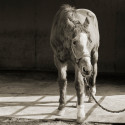 13 Fév 2017 - « Sentience and the Domain of Justice »
13 Fév 2017 - « Sentience and the Domain of Justice » 17 Mai 2017 - Convergence and Divergence between Animal and Environmental Ethics
17 Mai 2017 - Convergence and Divergence between Animal and Environmental Ethics 16 Fév 2017 - Environnement et vulnérabilités sociales
16 Fév 2017 - Environnement et vulnérabilités sociales 2 Nov 2016 - Yves-Marie Abraham (HEC, Montréal)
2 Nov 2016 - Yves-Marie Abraham (HEC, Montréal) 15 Nov 2016 - Joseph Heath (University of Toronto)
15 Nov 2016 - Joseph Heath (University of Toronto) 13 Oct 2016 - Yves Bonnardel, chercheur indépendant
13 Oct 2016 - Yves Bonnardel, chercheur indépendant 25 Nov 2015 - Paysages urbains et phronosis. Le Complexe environnemental de Saint-Michel (Montréal)
25 Nov 2015 - Paysages urbains et phronosis. Le Complexe environnemental de Saint-Michel (Montréal) 5 Avr 2016 - Carbon Pricing and Climate Justice
5 Avr 2016 - Carbon Pricing and Climate Justice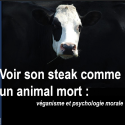 17 Mar 2016 - Voir son steak comme un animal mort: véganisme et psychologie morale
17 Mar 2016 - Voir son steak comme un animal mort: véganisme et psychologie morale 19 Fév 2016 - Forum Environnement 2016
19 Fév 2016 - Forum Environnement 2016 10 Mar 2016 - L’éthique animale entre philosophie, géographie et études culturelles
10 Mar 2016 - L’éthique animale entre philosophie, géographie et études culturelles 23 Fév 2016 - Phronetic landscapes. For an ethics of urban abandonment and recycling in metropolitan areas
23 Fév 2016 - Phronetic landscapes. For an ethics of urban abandonment and recycling in metropolitan areas 5 Mar 2016 - Political Animals: Agency, Participation, and Representation
5 Mar 2016 - Political Animals: Agency, Participation, and Representation 4 Fév 2016 - Value Theory in Environmental Ethics
4 Fév 2016 - Value Theory in Environmental Ethics 16 Fév 2016 - Kent A. Peacock (University of Lethbridge, Canada)
16 Fév 2016 - Kent A. Peacock (University of Lethbridge, Canada)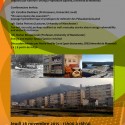 26 Nov 2015 - Justice et territoires de l’énergie: entre local et global
26 Nov 2015 - Justice et territoires de l’énergie: entre local et global 8 Oct 2015 - L’éthique de la consommation de l’énergie au quotidien : une remise en question?
8 Oct 2015 - L’éthique de la consommation de l’énergie au quotidien : une remise en question? 9 Fév 2016 - « Positive Duties towards nonhuman Animals – a Framework »
9 Fév 2016 - « Positive Duties towards nonhuman Animals – a Framework » 17 Sep 2015 - Jérôme Pelenc (Centre d’étude du Développement Durable, Université de Bruxelles)
17 Sep 2015 - Jérôme Pelenc (Centre d’étude du Développement Durable, Université de Bruxelles) 5 Oct 2015 - Au-delà de l’éthique humaine
5 Oct 2015 - Au-delà de l’éthique humaine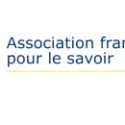 26 Mai 2015 - Récits de la prospective
26 Mai 2015 - Récits de la prospective 3 Mar 2015 - Compréhension du rapport aux règles routières: des différences de sexe aux différences culturelles
3 Mar 2015 - Compréhension du rapport aux règles routières: des différences de sexe aux différences culturelles 14 Mai 2015 - Les échelles de l’éthique en question. La philosophie politique face aux défis de la ville.
14 Mai 2015 - Les échelles de l’éthique en question. La philosophie politique face aux défis de la ville.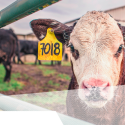 28 Mai 2015 - La libération animale, 40 ans plus tard / Animal Liberation, 40 years on
28 Mai 2015 - La libération animale, 40 ans plus tard / Animal Liberation, 40 years on 9 Avr 2015 - Workshop on Capitalism & Sustainability
9 Avr 2015 - Workshop on Capitalism & Sustainability 17 Sep 2015 - Animal Rights, Human Rights, and the Future of the Planet
17 Sep 2015 - Animal Rights, Human Rights, and the Future of the Planet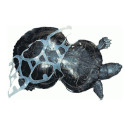 10 Mar 2015 - « Environmental Stewardship and the Values of Nature »
10 Mar 2015 - « Environmental Stewardship and the Values of Nature » 13 Nov 2014 - Food Deserts, Justice, and the Distributive Paradigm
13 Nov 2014 - Food Deserts, Justice, and the Distributive Paradigm 11 Nov 2014 - Après la décharge. La territorialisation des sites d’enfouissement de déchets fermés
11 Nov 2014 - Après la décharge. La territorialisation des sites d’enfouissement de déchets fermés 18 Mar 2014 - « Citoyens, consommateurs et l’eau : l’équité au-delà de l’approche binaire à Medellín, Colombie »
18 Mar 2014 - « Citoyens, consommateurs et l’eau : l’équité au-delà de l’approche binaire à Medellín, Colombie » 20 Mar 2014 - John Broome (Oxford)
20 Mar 2014 - John Broome (Oxford) 2 Mai 2014 - The Public Shareholder: The ethics, regulation, and risk of public utility commercialization
2 Mai 2014 - The Public Shareholder: The ethics, regulation, and risk of public utility commercialization 21 Fév 2014 - Attitudes, Valeurs et Environnement / Attitudes, Values and Environment
21 Fév 2014 - Attitudes, Valeurs et Environnement / Attitudes, Values and Environment 29 Oct 2013 - Human Rights, Global Justice, and the Problem of Perspective
29 Oct 2013 - Human Rights, Global Justice, and the Problem of Perspective 30 Mai 2013 - ATTENTION: Le séminaire de lecture sur la « justice spatiale » est ANNULÉ!
30 Mai 2013 - ATTENTION: Le séminaire de lecture sur la « justice spatiale » est ANNULÉ! 3 Mai 2013 - L’accessibilité comme condition de la justice spatiale en milieu urbain
3 Mai 2013 - L’accessibilité comme condition de la justice spatiale en milieu urbain 26 Avr 2013 - Nicolas Delon (Amiens, France)
26 Avr 2013 - Nicolas Delon (Amiens, France)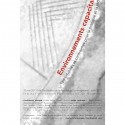 31 Mai 2013 - L’aménagement d’environnements capacitants: opportunités et contraintes pour la pratique et la recherche »
31 Mai 2013 - L’aménagement d’environnements capacitants: opportunités et contraintes pour la pratique et la recherche »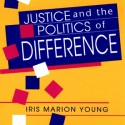 22 Mar 2013 - Séminaire de lecture « Autour de la justice spatiale »: une lecture d’Iris M. Young
22 Mar 2013 - Séminaire de lecture « Autour de la justice spatiale »: une lecture d’Iris M. Young- 15 Jan 2013 - Comment peut-on ne pas être végan ?
- 5 Déc 2012 - Séminaire de lectures « autour de la justice spatiale »
- 14 Nov 2012 - « Reconsidering resource rights: the case for a basic right to the benefits of life-sustaining ecosystem services »
- 12 Nov 2012 - « Un transport collectif accessible, promesse ou mirage ? Analyse dans la perspective des parents accompagnés des jeunes enfants de Montréal »
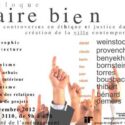 8 Nov 2012 - Colloque « Faire bien. Controverses en éthique et justice dans la création de la ville contemporaine »
8 Nov 2012 - Colloque « Faire bien. Controverses en éthique et justice dans la création de la ville contemporaine »- 4 Oct 2012 - Olivier Berreville au CRÉUM
- 6 Nov 2008 - Conférence de Jean-Luc Guichet sur l’homme et l’animal
- 20 Mai 2008 - Débat sur l’éthique animale
- 1 Jan 2008 - Colloque international du CEDRIE : participation publique et environnement
- 1 Jan 2008 - Colloque international du CEDRIE : participation publique et environnement
